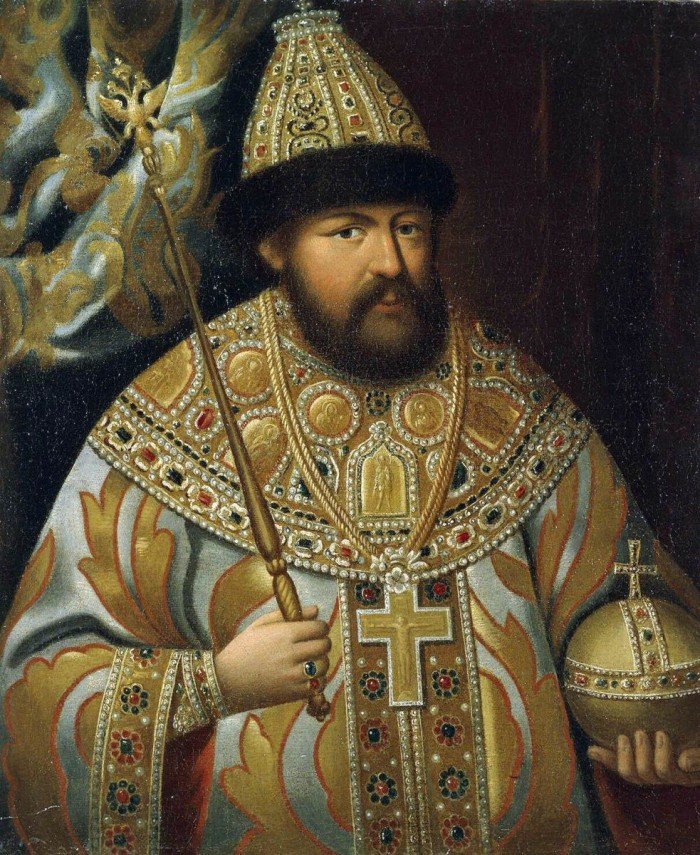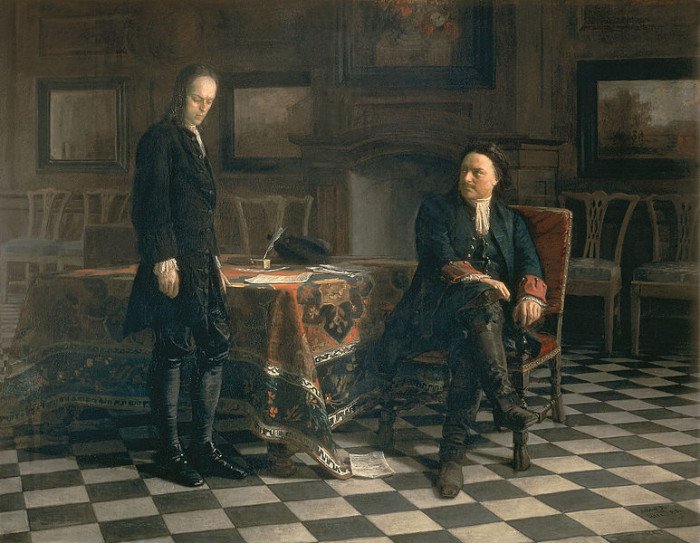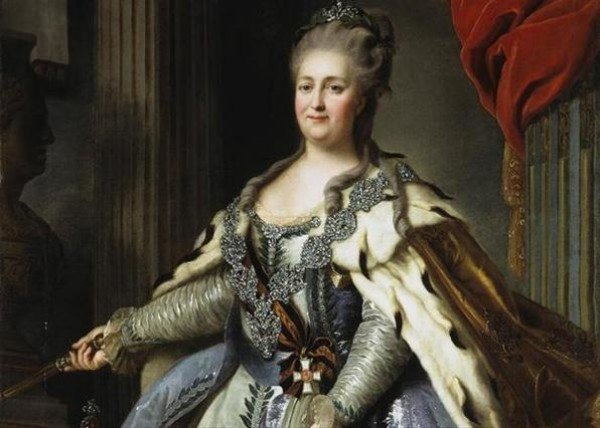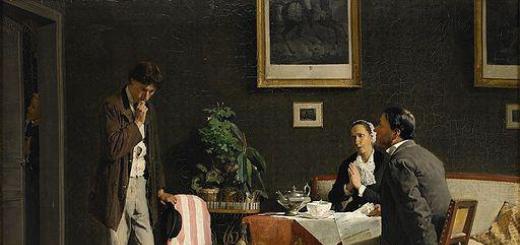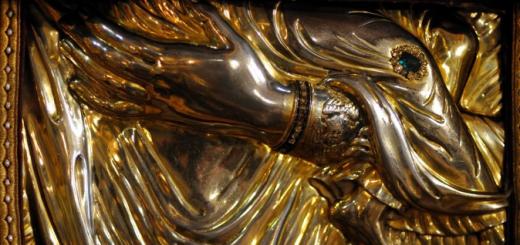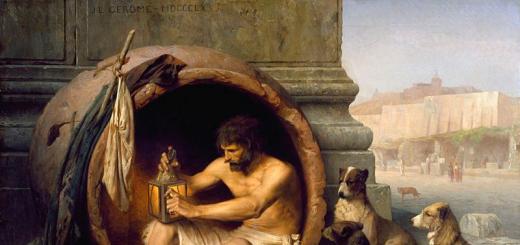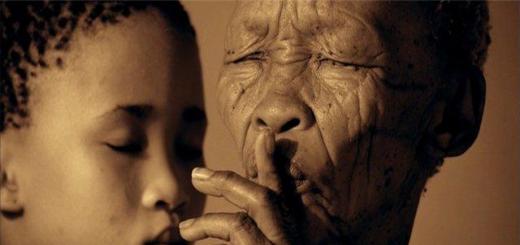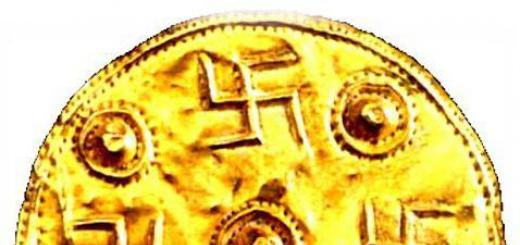History always has its heroes and anti-heroes. Russian history even has its own antichrists. We remembered who in different historical periods was honored with such a characteristic in popular rumor. From Boris Godunov to Napoleon.
1. Boris Godunov
At first, the "antichrists" avoided Russia. Nero, Attila and other anti-heroes of antiquity did evil, when Russia did not yet exist on the world map, and the popes, who were suspected of "Babylonian" origin, were far from the Russian Plain.
Signs of the imminent appearance of the "son of perdition" appeared with the death of Fyodor Ioannovich, the last monarch of Rurikovich. The unborn Boris Godunov was elected to the throne.
In the beginning, everything was fine: Godunov strengthened the state, took care of the people, and even built the first water supply system. But then the Great Famine came to Russia, which lasted from 1601 to 1603, and the people remembered the Antichrist. Rumors spread around Moscow about Boris's crimes: they say that he poisoned Ivan the Terrible, and killed Tsarevich Dmitry, and had a hand in the death of Fyodor Ioannovich. Rumors about the advent of the Antichrist into something massive and militant were prevented by the sudden death of Godunov and the coming to Russia of the "miraculously saved" Tsarevich Dmitry.
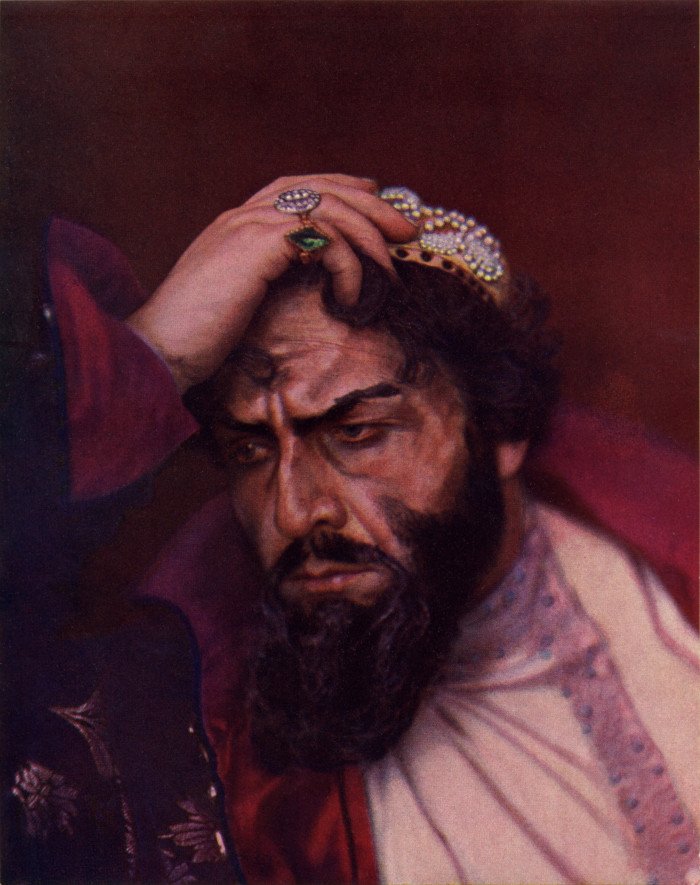
2. False Dmitry I
After the hardships endured, the people met the “revived” prince as a messiah, as a deliverer. It seemed like life would get better. And, most curiously, she was getting better. Everything was like in the “happy ending” of a harsh drama: the entrance on a white horse to the Kremlin, a touching meeting with the “native” mother, endless favors, both to the disgraced boyars and to the common people.
False Dmitry himself admitted: “There are two ways to reign, mercy and generosity or severity and executions; I chose the first way; I made a vow to God not to shed the blood of my subjects and I will fulfill it.” And he was merciful: he pardoned the boyars plotting against him, forgave robbers and thieves, abolished corporal punishment for the nobles, lifted the ban on buffoon performances, cards, chess ... And suddenly it all ended at once. The dissatisfied boyars made a palace coup, the tsar, beloved by the people, was killed, and his corpse was put up for desecration.
The people of Moscow were upset at first, but then the news spread among the monks that Tsar Dmitry was the Antichrist. There were witnesses of how a cross was found in the boot of the dead "uncut", on which he blasphemously stepped at every step. It was said that the birds shied away from his dead body exposed to general disgrace. The people sighed...
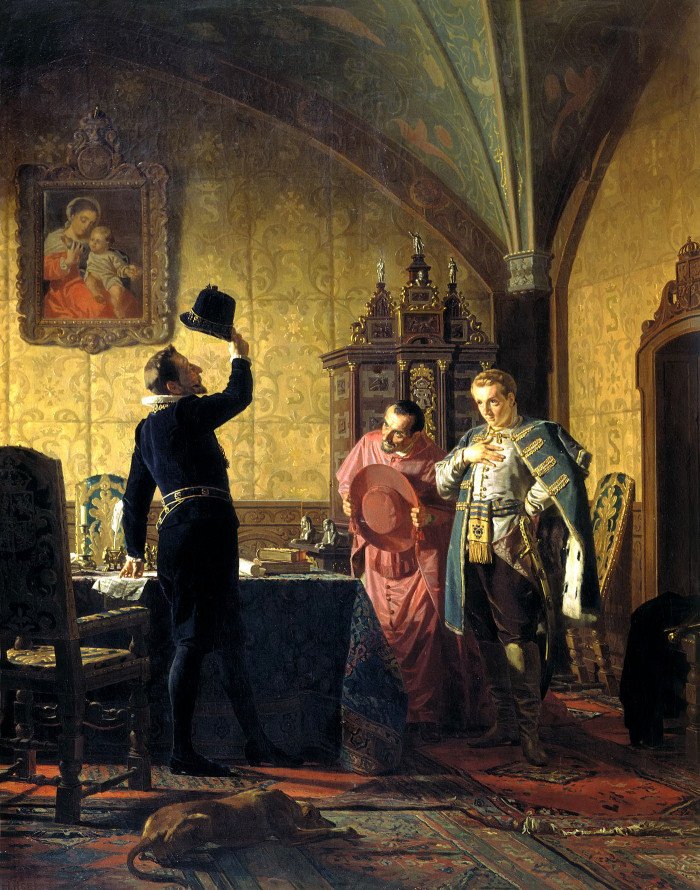 Oath of False Dmitry to the Poles
Oath of False Dmitry to the Poles 3. False Dmitry II
But Russian people rejoiced early. After the cannon was loaded with the ashes of the impostor and fired towards Poland, unusually severe frosts suddenly struck. It was the end of May: all the grass died in the fields, and all the crops were destroyed. There was a rumor about the revenge of the Antichrist. And then he rose from the dead...
Within a week after the death of "Tsar Dmitry", letters signed by the surviving monarch began to circulate in Moscow. They said that he "left the murder and God himself saved him from the traitors." And everything started all over again. Entire cities again swore allegiance to False Dmitry (Pskov, Suzdal, Uglich, Rostov, Yaroslavl, Kostroma, Vladimir and others), the most noble boyar families (Romanovs, Cherkasskys, Trubetskoys, Saltykovs, etc.). True, Moscow still managed to defend. And then God delivered from another antichrist: the impostor was killed by his own guards.
4. Alexei Mikhailovich
Tsar Alexei the Quietest was not very suitable for the role of Antichrist. Good disposition, concern for the poor, love for falconry, hunting for change. The last passion also played a cruel joke on the tsar: an attempt to remove everything superfluous from the Russian Orthodox tradition ended in disaster. The defenders of the former faith declared Alexei the Quietest the Antichrist and preferred to voluntarily burn in the fire rather than be baptized with three fingers.
5. Peter I
The son of Alexei, Emperor Peter I, with his indestructible passion for reforms, was doomed to the title of "Antichrist".
In the Old Believer “Collection from the Holy Scriptures on the Antichrist” one can find the following description of Peter I: “Like the pope in Rome, so this false Christ began to persecute and flatter and eradicate in Russia the Remain of the Orthodox Faith and his new intentions and setting new legal provisions, according to the spiritual and civil disposition, draw up many regulations and send out many decrees throughout Russia with a great threat ... and establish the Senate and the Synod and be the head of them yourself ... "
A rumor circulated in towns and villages among the common people that “he is not a sovereign - a Latvian: he has no post; he is a flatterer, an antichrist, born of an unclean maiden ... Since he sat down in the kingdom, red days are visible, all rubles and fifty.
6. Catherine II
What Peter I started, Catherine II completed. Russian in Russia has become even less. And the Orthodox Faith at the top gradually gave way to the "secular worldview." The Old Believers ascetics at first mistook Catherine II for a "Babylonian harlot", but, looking more closely at her reforms, they came to the conclusion that she was still the Antichrist. Only in a skirt.
7. Napoleon
The French emperor became the first "antichrist" declared officially, almost at the state level. In 1806, the Holy Synod of the Russian Orthodox Church issued a manifesto, which stated in particular: “In Egypt, he joined the persecutors of the Church of Christ ... Finally, to its greatest disgrace, he convened Jewish synagogues in France, commanded that the rabbis be paid their honors and established a new great sanhedrin Jewish, this most ungodly council, which once dared to condemn to the crucifixion of our Lord and Savior Jesus Christ and now thinks to unite the Jews, scattered by the wrath of God over the whole face of the earth, and arrange them for the overthrow of the Church of Christ and (oh, terrible audacity, surpassing the measure of all atrocities!) to the proclamation of a false messiah in the person of Napoleon.”
After Napoleon's invasion of Russia, verse 5 from the Apocalypse was often recalled: "And a mouth was given to him speaking proudly and blasphemies, and power was given to him to act for forty-two months." The last number sometimes meant the age of Napoleon (in 1812 he was already 43, and hence the inevitability of his imminent fall was deduced), other interpreters calculated the time of his military successes by 42 months, hinting at an unsuccessful war with Spain.
Interestingly, the Old Believers did not support the version of the French Antichrist, preferring "false prophets in their own country." On the other hand, the so-called educated class, the nobility, supported the version of the Holy Synod about Bonaparte's resemblance to the "purple beast."
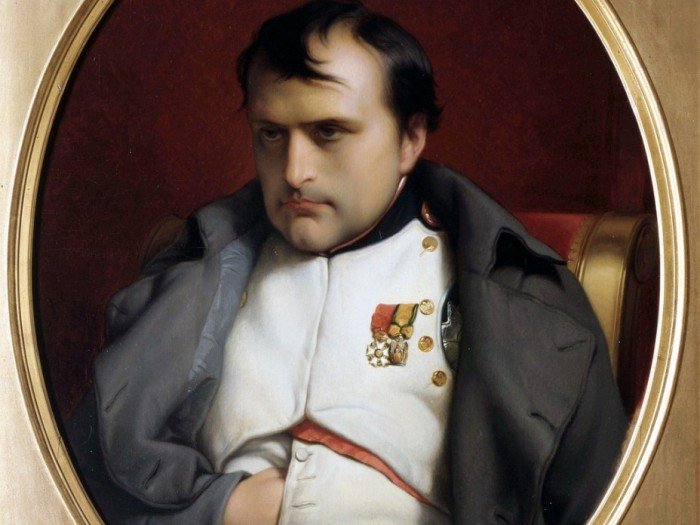
Found an error? Select it and left click Ctrl+Enter.
